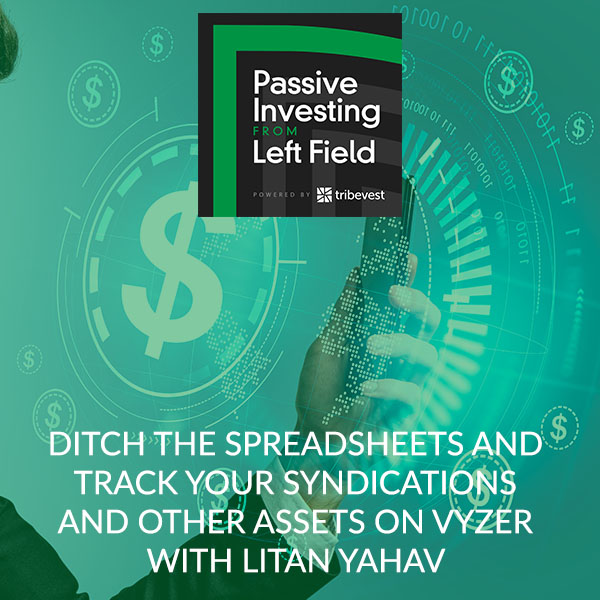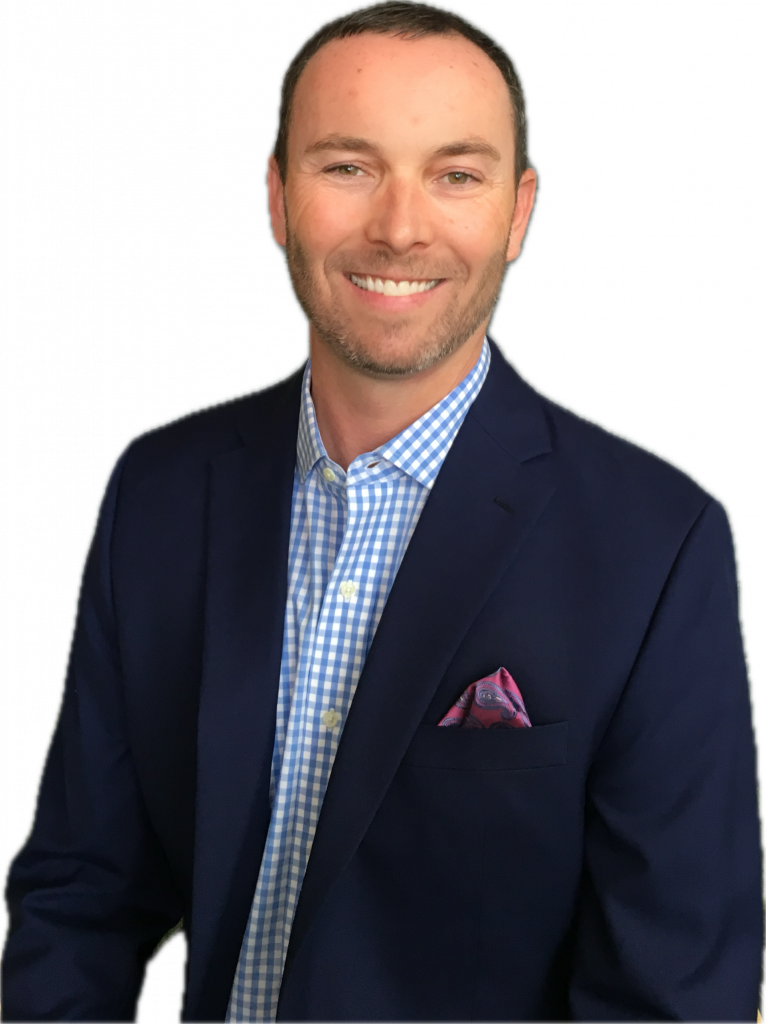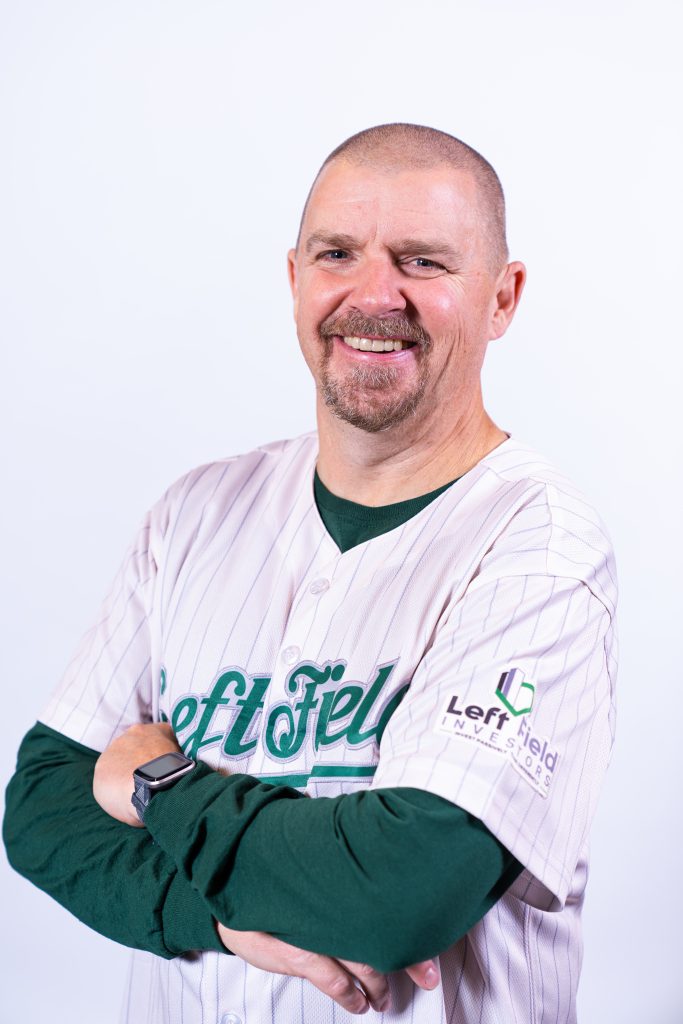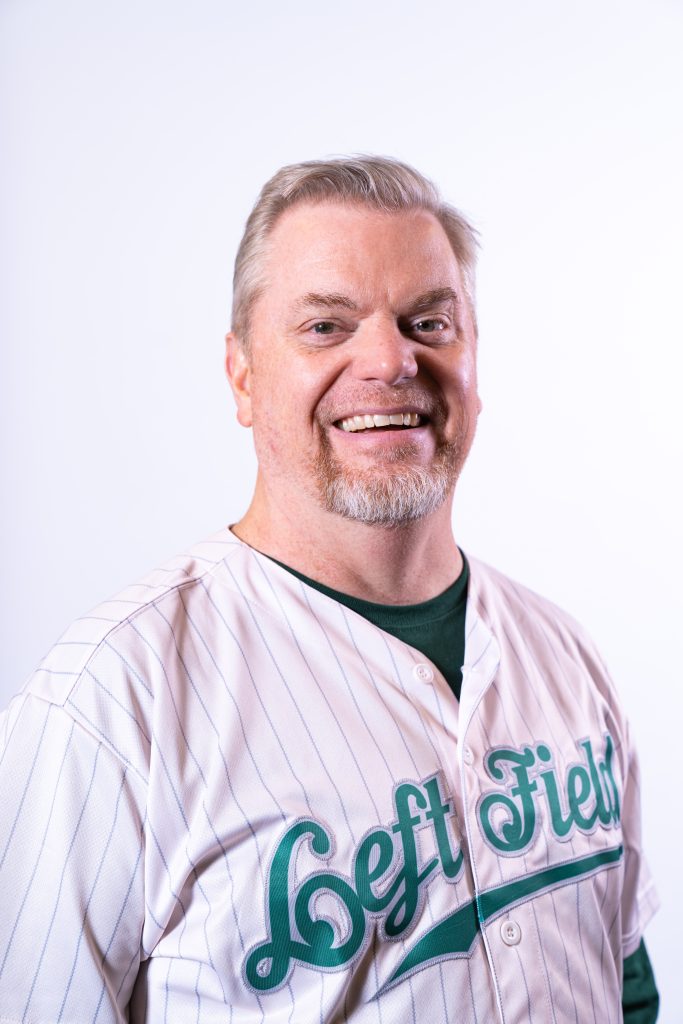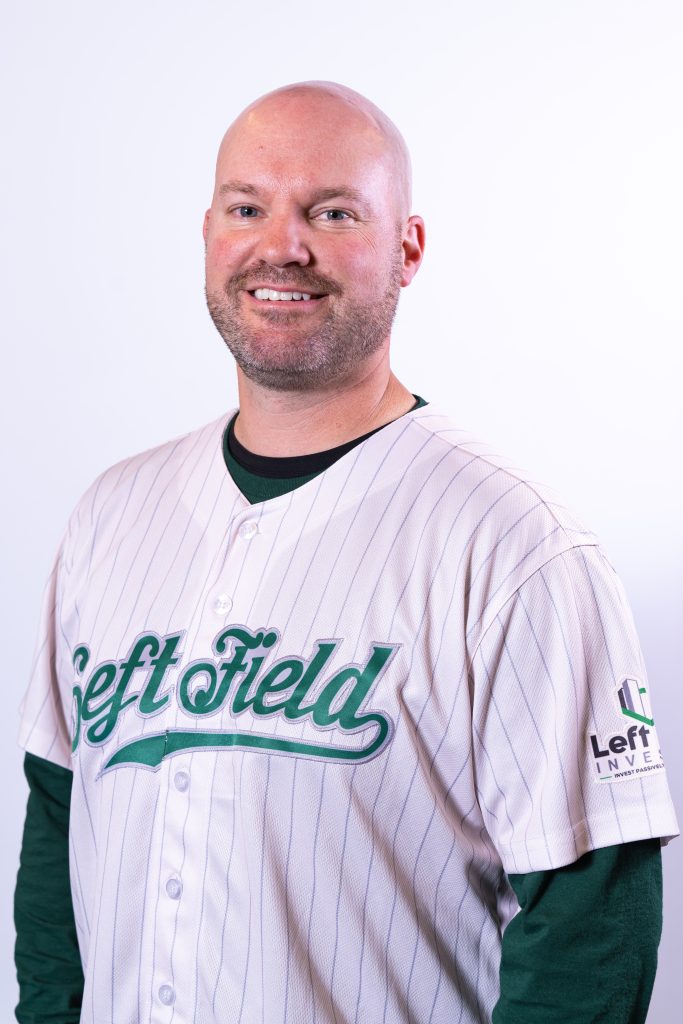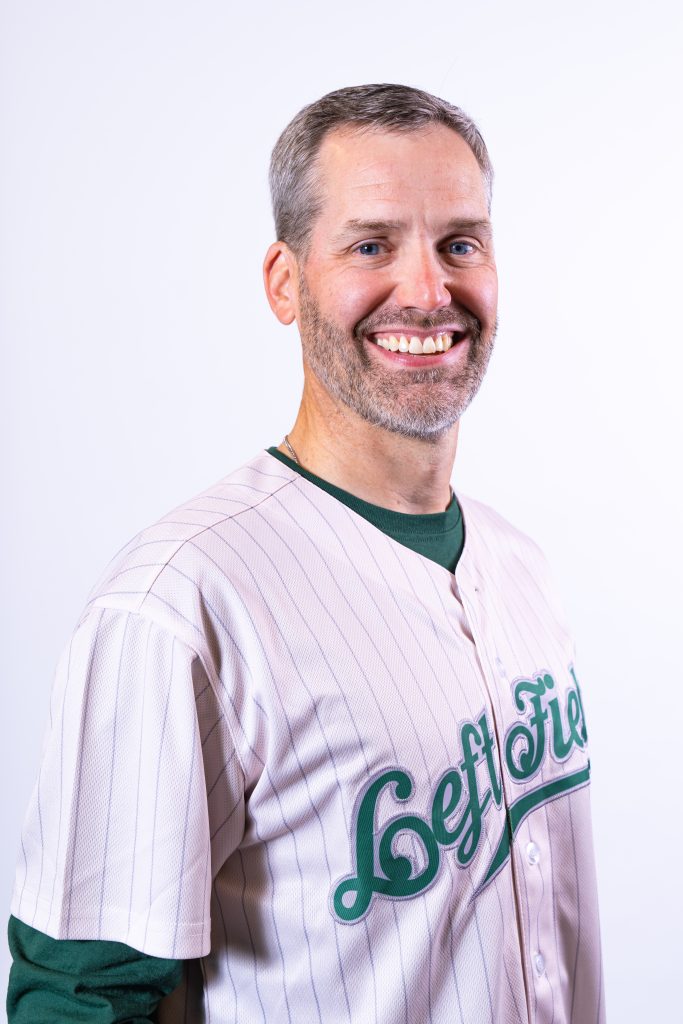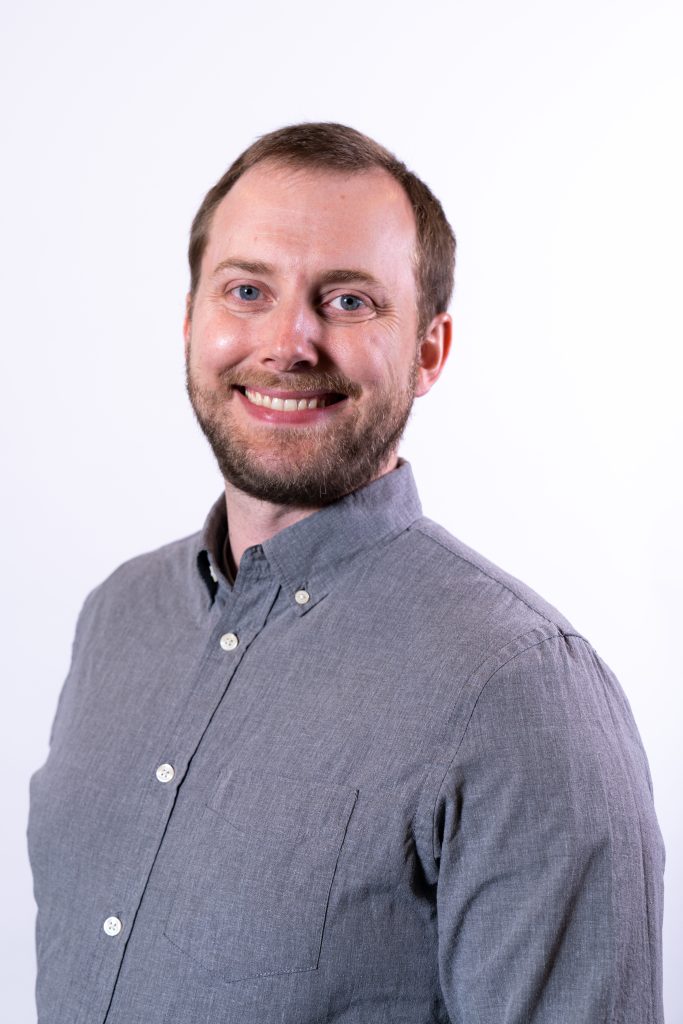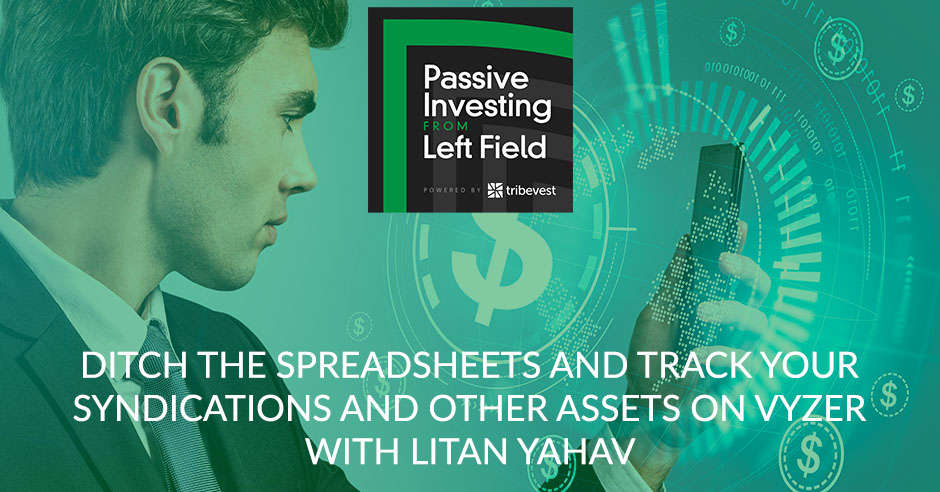
Vyzer is a wealth management tool that was designed to monitor and track all of the standard financial asset classes. But what’s most exciting about this tool is how it has been optimized to track passive syndication investments. Litan Yahav explains how Vyzer works in this conversation with Jim Pfeifer. Litan started out developing hardware and software for photographing and displaying diamonds online for trading. After he sold the company, he and his partner decided to invest on their own rather than go with a standard wealth manager. They found real estate syndications and started allocating capital but soon found that there was no software solution for tracking syndication investments – so they decided to build their own. This was the beginning of Vyzer – the complete wealth management tool that allows you to track all of your financial assets, including syndications and private placements. Tune in to this episode to learn how to ditch your spreadsheets and get started with Vyzer!
—
Listen to the podcast here
Ditch The Spreadsheets And Track Your Syndications And Other Assets On Vyzer With Litan Yahav
I’m excited to have Litan Yahav with us. He is the Cofounder of Vyzer, a wealth management tool designed to monitor and track all of the standard finance asset classes, but it also has been optimized to track syndication investments, which is something I’m super excited about. Vyzer is the place where investors can control their wealth and plan their future. I’m excited to have Litan with us. Thanks for being here and welcome to the show.
I’m super excited. This is my first show, to be honest. I got my water, my coffee, and I’m set. I appreciate you having me here and I’m excited to share my journey in investing and what led us to build Vyzer. I love what you guys are doing at Left Field Investors. I have been following you guys for a while, so great job on that.
I’m glad you are here and as your first show, we’ll get the jitters out. It’ll be easy because all you got to do is talk about yourself and Vyzer. The first question that I always ask is to tell us about the financial part of your journey. I know that you had a startup and an exit and then that is what led to Vyzer, but talk about how you went through all that the whole journey there.
I’m going to go a little more back in time. To give you a little personal background about myself, I’m on the older side of tech founders. I’m married with three kids. I was born in the States. I moved to Israel when I was a kid. I was in the Navy for six years, then went to school here. I founded my last startup several years ago with my cofounder in a very weird industry, the diamond and jewelry industry.
What we did was develop hardware and software for photographing and displaying diamonds online for trading them. It was this insane business that totally re-standardized the way diamonds are traded around the world. We were lucky to have an amazing team and great investors. We scaled that to the point where now it’s the standard for diamond photography and imagery around the world. Almost every diamond around the world goes through our technology.
We sold the company back in 2015 to a US company called JamesAllen.com which sells engagement rings online. I stayed on for a few more years. In 2018, me and my cofounder decided to move on. At that point, we were about 250 employees with 5 offices around the world and essentially photographing all the diamonds in the world.
I’m giving this background because back in 2015 when we sold the company, we didn’t make tens of millions of dollars in this exit. However, we made enough money to start our journey of investing and managing the money on our own, getting exposed to numerous people and companies that approached us and offered to take our money with them and everything that’s associated with that.
At that point, we said, “We are going to do this on our own. How complicated could it be?” We are tech founders. We are also risk-takers, so we dove in and started researching where to put our money and how to invest. In Israel, the cool thing is every second person in Israel basically invests in real estate syndications abroad.
I always laughed. In Israel, if you have $50,000 free cash, you will go and buy an apartment in Berlin. They will never see it. They know a guy and that guy knows a guy. That’s how our journey started. We spoke with friends who connected us with other friends. We started to deploy capital and real estate syndications in the US and in Europe just to good friends of ours or good friends of good friends of ours. We started to build a portfolio of alternative investments and more conservative stuff as well.
Fast forward, a few years down the road, we were in a situation where we had multiple real estate syndications, cashflow coming in, capital calls going out, multiple bank accounts and a spreadsheet that grew insane. Don’t get me wrong. These are good problems to have. I’m not complaining for a second, but even these problems are problems.

Since we are in tech, we decided, “It doesn’t make any sense to build ourselves up a software to automate the process of tracking our investments and cashflow, planning and automating as much as possible,” because we made money, but we didn’t want to work at managing our money. We built this product for ourselves.
During the process, a bunch of friends and family wanted to use it as well. We took a minute and said, “This epiphany where there might be more people out there that might use this that might need this as well and get value out of what we are building.” We then took a few months to research the world and understand what’s out there. What are people like us using to streamline that investment tracking process?
After a few months of speaking with hundreds of people around the world and in the US, we concluded that millions of people like us have to decide between two alternatives. One is to build a crazy spreadsheet and maintain it, and then use Dropbox or Google Drive for all the documents and all that stuff.
The other alternative is to pay someone tens of thousands, or even hundreds of thousands of dollars a year to work for them. At that moment, we said, “We need to sell this.” We found Vyzer and we set out to solve that. That’s like the background story for how we reached Vyzer. We do not have spreadsheets anymore. We do not use Google Drive and Dropbox. We get a lot more value using our own platform.
I have used it and I haven’t completely ditched my spreadsheet yet. I’m putting things in both places because I’m a cautious and nervous guy, but I’m days away from ditching the spreadsheet. You know I’m a big fan. I love Vyzer and it makes everything so much easier. I want to go back a little bit. You said it’s because you are a tech founder, but when you decided to go on your own, rather than a wealth manager, when you had an exit and you had some money, what was the thinking behind that?
It got you into real estate. Maybe the wealth managers wouldn’t have put you there, but what was the thinking behind, “We are going to go do it on our own?” I would think when you are coming into a big exit like that, as you said, you are going to have a lot of people contacting you saying, “Here’s where you put your money.”
It’s a combination of multiple factors. One of them is the fact that when you have so many alternatives, it makes it even more difficult to choose between them and you don’t choose any of them and go on your own. That’s one driver. The other is that most of these wealth managers, especially those in our segment who don’t have tens of millions, are usually very focused on the financial markets, some asset allocation in the financial tradable markets. They are looking to achieve mediocre returns with no risk-taking approach that made sense for us.
We are in wealth creation mode. In wealth creation mode, we are looking to take more risks enjoying more wealth. When you work with a financial professional, they are in this Catch-22 because, on the one hand, they want to give you value and they want to grow your money, but they are never going to take too much risk because that’ll risk them losing your money, and then that’s bad for the reputation.
I’m a non-financial person. I don’t want to walk into any wealth manager or financial professionals out there. This is our approach in the way we saw it. Once we decided, “We’ll have a managed account and some brokerage account that we can leverage in some index and stuff like that.” The rest of our money that we want to risk will be put into the more alternative stuff like real estate, private equity, crypto, startups, and stuff like that.
Having a foot in both worlds like you are in the US and Israel throughout your life, was it easier for you to go into alternative investments, real estate? As you said, 1 of every 2 people in Israel are already investing in syndications overseas. Did that give you a head start in confidence? I know people starting in the US who walk out their front door and they can’t find anyone doing anything but the 401(k) and the stock market. Everyone thinks, “Syndication. Scary. Bad. What are they?” It seems like you probably had a head start on that because you didn’t have those feelings.
[bctt tweet=”You can just throw your current spreadsheet into Vyzer, and then it’s translated into data. Once that’s set up, then you can then understand each investment as to where its position is, where it should have been, and where it will be in the future.” username=””]
This goes into how the Israeli financial and retirement systems are built. In Israel, you don’t have a choice to have a 401(k) or anything like that. It’s mandatory. An employer has to deposit funds for you in a retirement account, and you have to deposit funds into that same retirement account. You don’t have a choice.
I think the mindset of most Israelis is such that we feel that we are taken care of like our retirement accounts are being built. We can’t do anything about it. There’s never a dilemma whether to put any excess cash into the retirement account like a 401(k) or IRA because that’s taken care of. What do you do with the excess cash?
There are other types of products that are similar to products in the US, but they aren’t defined as retirement stuff. Another thing is that Israelis aren’t that aware of the tax benefits involved in investing like Americans are because it’s not every Israeli has to file their own taxes as opposed to in the US, where everyone files a tax return.
You don’t think about it. You have cash in the bank and you want to deploy it, and you are hearing people that are making a lot of money in tech and real estate, and you want a cut of that as well. You take the risk and put some money in. There’s a lot of fraud out there. There are a lot of scammers and people that are taking advantage of that because there is so much money flowing into the syndications in Israel. That led to a lot of not honest people. It has advantages and disadvantages.
One of the things we always talk about is sponsors. How do you find a sponsor that you know, like, and trust? You are right. There are some scammers out there. How did you get comfortable with the syndicators you were using and were they Israeli-based companies investing in the US, or did you go directly to the US and invest with US syndicators?
In the beginning, it was only through Israelis. I want to talk for a minute about the phrases you mentioned because there are three phrases or terminologies in real estate syndications that I have been aware of, which are vague, overlapping, and don’t mean much. There’s a sponsor, syndicator, and then there’s the operator.
On top of all of that, there’s also the GP, like which one of them is what. Something you find, especially here in Israel, is that most of the Israelis that do real estate abroad, these GPs are the sponsors or they are the middleman. They find the reputable operator who has deal flow, so there’s the money in the deal. Sometimes there’ll be Co-GP and sometimes, rarely, they are going to be the operator themselves.
I have invested with Israelis that are end to end. They are the sponsor, syndicator, operator, and they even the property manager. They have a foot on the ground in managing the actual properties and I have been looking only for those in Israel and in the States. To answer your questions, my cofounder and I started investing through Israelis, who either are the sponsors or the operators in the US and Europe.
Years ago, I joined this group in the US called GoBundance, and I have invested with you with a few operators from GoBundance as well because it was very hard for me to find people I can trust. In Israel, I only invest with people that I know or know who know other people, so the trust level is very high, and you know they are not going to screw me over.
The deal might fall through and the market might crash, but they are never going to lie to me or steal from me. I wanted to find a way or a place where there was going to be that level of trust. Since I have been writing a little about investing in syndications online and stuff like that, I have been approached by the operators and GPs online.

I have been sent cold messages on LinkedIn and Facebook and say, “We have this deal. What do you think?” I’m like, “How do you even raise money from people like that?” I’m assuming there are people that answer that and we’ll invest with these people without even knowing them, and for me, that was very difficult. I have been looking for ways to reach a level of trust that I will be able to take that leap and invest with them.
The whole point of Left Field Investors is that the community is to help other people meet the same quality sponsors you are talking to because of trust transfers. If I know you are investing with someone and you had a good experience and you trust and recommend them to me, I’m still going to do all my due diligence on that sponsor. That gives me a huge headstart because now, I know someone that I know, like, and trust. They have invested with that sponsor, and they have had some good success so far. That’s huge.
Now that you are working with Vyzer, I want to dig down a little bit into it. Are there going to be any of those community aspects to Vyzer that would help people find sponsors or show what other people are investing in without these privacy issues, but is there going to be a community aspect to it?
Yeah. That’s one of the drivers that led us to build Vyzer because of those conversations that I had with operators or sponsors from these cold calls. I’d ask them, “Can you guys give me a reference or references to people that have invested with you or other LPs?” They will give me names and phone numbers of other people, but then it’s like, “How do I know that these people were in good deals or bad deals?” You will probably only give me the good deals because of the bad ones I will never hear about. It’s like, “How do I get access to the bad deals as well?”
In Vyzer, we are building functionality or another layer of transparent data. People can opt out of it for sure. Essentially, if my syndications are Vyzer and the performance of those syndications are also tracked because I need to see it in Vyzer. Do you mind if I can share my information anonymously with other people in Vyzer and then create this crowdsourced data source of all the information that people have invested in these syndications? Rank the syndicators based on the performance of other people without blocking any data, not hiding any information, and then we can build this endless data source that has zero conflict of interest so that you can make better decisions.
You can also communicate within Vyzer with people that invest in a specific operator and learn from their experience if there’s a deal flow that’s coming in and you want to ask questions from people that have experienced a similar deal flow from other sponsors or operators. You can then communicate. It’s anonymous, but it’s based on historic performance.
It’s like it should be the best source of information for making those decisions. This doesn’t only have to do with real estate syndications. It can be any type of fund, any type of private fund where the data or the information about those funds is unaccessible. There are issues like non-disclosure agreements and stuff that you cannot share information with others. That’s why we’ll give the ability to opt-out of stuff. At the end of the day, we are building Vyzer for people like us, for LPs and not getting service at any point to the GP. I don’t know with them anything. We are going to stay true from now going forward and only the LPs to ensure that we always are true to that cause.
I have 2 or 3 different Excel spreadsheets that each have 50 different sheets in them, and they are all trying to talk to each other and argue with each other and figure out what is what. Tracking my investments is a struggle. In Left Field Investors, we developed our own tool. A portfolio tracker. We never got it to where it was very good. It was okay, but it wasn’t very good. What factors did you focus on when you were starting Vyzer to make sure that it would allow people like us who are investing in passive investments like real estate syndications that it would apply to us? Secondarily, there’s other stuff, you can manage all of your stuff on Vyzer, but the focus for me and for you is finding a solution to our problem, which is Excel spreadsheets that are too cumbersome. What were you focusing on?
Our vision is to add three elements to Vyzer. The first is automation. Automating as much of the tracking process as possible. Automating the fact of understanding what I have now, what I had in the past and what I have in the future, and then tracking those going forward. There are insights that are like raising flags if things are happening as planned or not. Performance-wise and letting me know capital calls and distributions and stuff like that. The third one is the benchmarking side of things, comparing to what other people are doing, showing you that transparent data of performance. Those are basically the three elements of what we are trying to build at Vyzer.
The first one is obviously the one that’s supposed to replace the spreadsheets. You can throw your spreadsheet into Vyzer, then it’s translated into data, and everything’s set up for you already in the Vyzer system. Once that’s set up, then you can understand each investment, where your position is, where it should have been and where it will be in the future. If you are linking your bank account that you are supposed to receive distributions or to pay more capital calls or investments, you can link that into Vyzer as well, and then Vyzer automatically tracks the performance of that cashflow. It lets you know if you are on track or not or if the distribution was missed.
[bctt tweet=”With Vyzer, you don’t have to use spreadsheets anymore. You don’t have to use Google Drive or Dropbox. You get a lot more value just using this platform.” username=””]
One of the things that we have over the years is you receive these emails from the sponsors or operators of updates and distributions or updates of stuff or K1s. The idea for us is that you won’t have to log that in. You forward it to Vyzer and it’s updated automatically in your Vyzer account. It’s not replacing the spreadsheets. It’s replacing it but adding on a ton of value on top of it is essentially what we are trying to achieve.
As you mentioned, adding in if you are already tracking your real estate syndications or private equity, your banks and stuff like that, we want to give you the ability to track everything else as well. We are focused from the get-go on those more alternative private placements for real estate and private equity.
What type of metrics can we track? Is it cash on cash return? Is it IRR? What are any other choices? Is it flexible enough to highlight one thing, take another, and not pay attention to it?
We are adding metrics as we go forward and speaking with all of our customers and users like you and others. For example, put the metrics aside, one of the things that we have implemented, one of the things that you ask for is the ownership percentage, the ability to add in an investment. Also, define my percentage of that investment so that it can be tracked easily and understand the whole picture and my position.
That’s where one aspect that we are always improving any more functionality based on the community. From a metrics standpoint, we are very much focused now on cash on cash, IRR and ROI, both from a year-to-date perspective, from an annual precept perspective and from an annualized perspective. To give you that ability to compare what you plan and what’s happening, and it’s a work in progress.
These are things that need to be perfected and improved. There are people that, for example, like the IRR on its own, is like we have people that want the IRR, but others are saying like, “I want the X IRR,” which is even going deeper into the performance tracking process. There are others that don’t even know what IRR means.
That’s the rock that we died on, the IRR, because we couldn’t figure out how to calculate it automatically. We tried to do it at the portfolio level at the asset level, and it was a disaster. We gave up and that’s when we ran into Vyzer. I looked at your platform and I thought, “Why am I trying to make this myself? These guys know what they are doing.” You mentioned group investing, which was really important for me because I am involved with Trivest, so we have a lot of group investments. To be able to stop doing a calculation before I make an entry is going to be pretty fantastic.
If the distribution is $100 and I own 12% of that investment, that $12 is going to show up rather than I have to calculate it. That’s huge. You are going to link to other financial institutions. I can link a brokerage account, a bank, and at some point, as you mentioned, we’ll be able to link directly to the platforms of the syndicators or the sponsors that are sending us distributions.
We are already linked to about 17,000 financial institutions in the US through Plaid, which is a pretty known aggregator. We are adding more aggregators as we speak to give more coverage. The more private placement portals aren’t big enough for these big aggregators to integrate with, and so we are building our own integrations to them. Not many people know, but there are about 50,000 GPs in the US that do real estate private equity stuff, from 10 to 1,000 LPs.
There are software companies that offer these GPs. They are called funded administrators or GPLP relationship platforms like White Label Solutions where a company like Ashcroft purchases this software from Juniper Square, which is one of those funded administrators. When you want to log in to Ashcroft’s portal, you are going to use Juniper Square to do that.

We are building integrations through Juniper Square to all the funds that use Juniper Square so that we can then automate the process of retrieving data from all those funds. As with Juniper Square, there are about 30 other of those funded administrators that we want to integrate with, with the objective to automate as much as possible from the process.
I go back and forth on that because I love it if it does it for me. Also, I still cling to my Excel spreadsheet because when that distribution comes in, I want to type it in so that I know that it got there and I have that money. At the same time, in 2022, I shouldn’t have to go look at my bank statement and type stuff into another program to make sure that the data gets in there. One of the things I like about Vyzer is it pops up and tells you, “You missed a distribution,” and that gives me a little bit of peace of mind because I haven’t figured out how to make my Excel spreadsheet remind me of anything.
Don’t get me wrong. Excel is an amazing product. However, it reaches that limit where you become enslaved by maintaining it. That’s when we moved over to build ourselves a software to automate that.
I’m still enslaved a little bit to it and I’m clinging like I can’t give it up. I don’t want to sound too much of a fanboy here, but when I saw the Vyzer software and the platform and what it was capable of, it told me that this is legit. I haven’t dug in too much to the stuff outside of the passive investing or the real estate, but can you talk about what other functionalities?
I know we are going to be able to enter our distributions and the proforma. We know what our distributions are supposed to be for these passive investments, but what about my pre-IPO, my stock market, mutual funds, brokerage, Bitcoin, crypto, and all the other stuff? Do I have to go to someplace else for that or can I do it all in Vyzer?
You can do it all on Vyzer. We are enhancing the capabilities in order to do that better. You can already integrate your Robinhood or TD Ameritrade, Interactive Brokers, Fidelity, Schwab or whatever you use. You can already integrate that into Vyzer as well. Coinbase and Gemini, and many crypto exchanges as well. You can integrate those into Vyzer. You can add in your Kartra account if you are invested in startups. You can also integrate that.
You can also add all that stuff manually as well if you don’t want to link anything and you can manually input that type of stuff. We are throwing the documentation of those deals and then it’ll be translated and set up for you. We are focused across the board. You can add your loans and your credit cards. You can add in your brokerage accounts, long-term savings. Whatever you want, you can add. It needs to be as holistic as possible so that you’ll get the most value out of it.
You mentioned documents and I know because I have used the site that there is a magic box that I can throw a PDF or an Excel spreadsheet in, and I go to bed and wake up in the morning and all of a sudden, the investments are populated. Can you talk about what that is? Is it AI or is it people backstage massaging the data? When it comes out, you still have to check it and make sure that everything came in right, but in my limited experience so far, it comes in more right than it does wrong.
We launched the magic box with the premise to give our users more value where they can throw everything into the platform. At the moment, that data is anonymized and then inputted by a team of analysts in our office. As we move forward, we are teaching, assisting to do as much of it as automated as possible, and there are still documents that we can do automated from now, but other documents will probably stay manual moving forward.
It is a work in progress and there’s a learning curve to perfect the input of data. One of the important things that I like to emphasize around that point is privacy and security because that’s one of the things that pops into mind when you think about those financial data and even linking accounts and adding data.
[bctt tweet=”Vyzer is not just replacing the spreadsheet. It’s adding a ton of value on top of it.” username=””]
This might sound like a cliché, but because we have military in our DNA, everything from the public website all the way to the data that’s inputted is at the highest level of security and privacy. We anonymized data. It’s very limited access. Everything is super encrypted. We pay companies to try and hack our website and data and then show us where we are vulnerable and fix it.
Even though we are not required by law to do so. We go above and beyond to ensure that we are as secure as possible, like even more than bank-level security style is what we talk about. We have had users come up and ask us, “Why do you have the multifactor authentication when I log in? It drives me crazy.” You don’t want us to get rid of that. That’s what’s protecting your data, that multifactor authentication side. Security and privacy, I wanted to emphasize that point is super important for us.
I have to admit I do get annoyed by the two-factor. Everything I have financially is going to be in there, and it’s not that someone could transact through Vyzer, even if they did get in, but they would have all of my financial information. That is something that I would prefer to keep to myself. I don’t mind typing in six digits. It is one of the easier two-factor IDs. I have others that are much more complicated.
I was going to ask you about the privacy issue. You mentioned that there are going to be some community aspects to it and I know you are anonymizing data. The privacy and the community sharing, how do they interact? You said I could opt-in or opt-out. If I opt-out, do I still get to see the results or is that saved for people who opt-in? How does that whole process work with the security and what will the community be able to do?
To put things into context, the community is not up and running yet. We hope to launch that. When it does launch, it’ll be anonymous. You’ll be able to opt-out, and we are still trying to think like what access you’ll have if you opt out. If you opt-out, it’s a question like would it be fair to show you everyone else’s data that decided to opt in? Probably not.
The way we think about that. Even when you do opt-in because the data is anonymized, no one will see who shared the data. They will see the aggregative amount of people that invested with a specific fund and maybe the performance of that fund versus the target that people expected from a calculated average perspective.
That’s how we see the privacy aspect of the community and even chatting around those investments will also be based on what we are thinking about initials, so you won’t see who you are speaking with. If you want to expose it, you can go private and then chat with whoever you want to chat with, and then it’s like it’s your responsibility to disclose who you are, but you will not have to do any of that.
That’s a great way to look at it and I like the community part. Selfishly, coming from Left Field Investors, will there be the ability to label a community so that you have the broad Vyzer community, which is everybody. Hopefully, everybody will opt-in and share that data, but then have a subgroup like Left Field Investors or one of these other investment communities to be able to check a box and say, “I’m part of this community now. You could aggregate our data and share it with them.” We spend a lot of time serving our community and trying to find out where they invest so we can make partnerships that will help make it better for them. To accentuate the benefits of this type of thing, are you going to be able to have these sub-communities?
It’s something we are thinking about how to give more value to each member of the specific communities that are out there. There’s a ton of communities writing they want to make sure they get the value they deserve, so for sure. It’s still a concept we are developing. It hasn’t gone down to the drawing table or it’s in the drawing table, housing on not to develop down to developing yet, but an aspect we are thinking about.
One of the things that I have enjoyed because you could probably tell, and I know you know, that I’m so excited about this because, as I said, we tried to build it and could it, and I’m glad we didn’t because we found something better. One of the best things I like is how well you guys do with the feedback. I have inundated your staff with pages of feedback and you guys have implemented almost every change I have given, or at least discussed it with me and said, “Yes, this works or that doesn’t and here’s why.” Is that going to be ongoing where you are willing to listen to the community and make those changes? Because that is a fantastic feature that you guys do.

A hundred percent. First of all, don’t take this the wrong way. Your feedback is amazing, but we will always vet and check if one person’s feedback matches the rest of them, just to ensure we are building something that the majority of the community will use. If your feedback is totally on point and that’s why it’s been put down to building.
We have also added a feedback feature within Vyzer where you can vote for features others have recommended. It’s an integral part of the product at the moment. We are building this for people like us and want to hear what people like us are experiencing in the product to build the best product possible to bring the most value possible.
We’ll probably get to this, and we are not building this just because like, “We are building this because we need it and we think it brings a ton of value.” At the end of the day, we’ll need it to maintain it. We are going to start charging for it, and we want to make sure that we only start charging for it when the product brings that amazing amount of value.
In order to bring that amazing amount of value, we need to be very much close to our community of users and listen to you guys and us as well as we build it so that when we do charge, it’ll be that point where this is such an amazing platform. There’s so much value. I’d love to pay for it because I don’t want them to sell my data. I don’t want them to have any conflict of their interest. I want it to be a platform that’s built for me, you and others like us.
You’ve nailed it. You know I’m a big fan. I have already said whatever it costs. I will pay it because I have already gotten value out of it and I love it. We don’t want to make this all about how awesome Vyzer is, but I will save that for the end comments because I love it. The last question I ask is what is a great podcast you listen to?
To be honest, I listen to NPR a lot to the TED Radio Hour and How I Built This because I’m in innovation and building stuff. That’s super interesting to me. I listen to you. You are one of the only shows I do listen to in the real estate investing space. I listen to the Real Estate Brothers and a bunch of others, but mainly, I listen to things that are more in my world.
I have listened to the NPR stuff. That’s good stuff. Thank you very much for that. The last question is, if readers want to get in touch with you, what’s the best way to do that?
You can email me [email protected]. On LinkedIn, Facebook, Twitter, or through the website. You can log in and through intercom, we have this big blue button on the bottom right. It either reaches me or my team, so feel free. I’d love to chat.
Will there be an opportunity to participate in Vyzer, go to the website, and put in your data? Is it public yet?
We launched Vyzer as a public beta. Anyone at the moment can log in and play around with it. It’s free of charge at the moment. Play around with it. Let us know if you have any feedback. We’d love to hear about it. We will probably start testing monetization because at that point, we will already have the community aspect as well. Anyone can sign up now, play around with it and let us know what you guys think.
Thank you very much. This has been fantastic. I’m pleased to be that Left Field Investors can be partners with Vyzer. It’s a great platform. It’s going to be a great community. Thank you very much for being on the show.
Thank you so much for having me. This was amazing. I appreciate it.
Important Links
- Vyzer
- JamesAllen.com
- GoBundance
- [email protected]
- LinkedIn – Litan Yahav
- Facebook – Litan Yahav
- Twitter – Litan Yahav
- TED Radio Hour
- How I Built This
- Real Estate Brothers
- https://LeftFieldInvestors.com/podcast/
About Litan Yahav
 Litan served for in the Israeli Navy for 6 years. In 2012 he Co-Founded Segoma (Acquired by Jamesallen.com/R2NET in 2015) which revolutionized the global diamond and jewelry trade using proprietary 3d imaging hardware and software – scaled the company to 250 employees across 5 offices around the world, bringing Segoma to become the standard for the diamond trade.
Litan served for in the Israeli Navy for 6 years. In 2012 he Co-Founded Segoma (Acquired by Jamesallen.com/R2NET in 2015) which revolutionized the global diamond and jewelry trade using proprietary 3d imaging hardware and software – scaled the company to 250 employees across 5 offices around the world, bringing Segoma to become the standard for the diamond trade.
Since the successful exit, investing became a focus, and over the years his portfolio grew bigger and more complex, with real estate, private equity, startups, crypto and other alternative assets accounting for the main part of it.
That was the beginning of Vyzer.
Our sponsor, Tribevest provides the easiest way to form, fund, and manage your Investor Tribe with people you know, like, and trust. Tribevest is the Investor Tribe management platform of choice for Jim Pfeifer and the Left Field Investors’ Community.
Tribevest is a strategic partner and sponsor of Passive Investing from Left Field.

